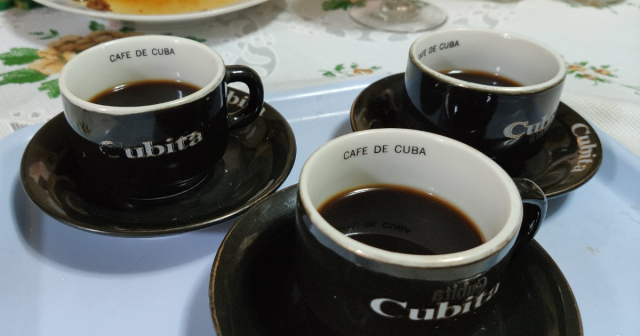Amid the scarcity of food and basic products in Santiago de Cuba, a Catholic priest has shared a traditional alternative to coffee known as "the coffee of the poor," made with platanillo seeds.
Father Leandro Naun Hung, who works to empower rural communities in Santiago de Cuba in light of the current economic crisis, shared on Facebook a little-known tradition for many, but one that is common in the region due to the scarcity of conventional coffee.
The video features a conversation with a local resident, discussing how the plant known as "platanillo" is used as "the poor man's coffee," a substitute that many locals have embraced during tough times.
The woman outlined the steps: the platanillo fruit is harvested, dried, toasted, and then ground to obtain a powder that serves as an alternative to coffee.
He recounted that this practice has been passed down through generations, and that consuming platanillo coffee has not only been safe for health, but it is even attributed with beneficial properties: “The root of the plant is used to make medicinal tea for the kidneys,” he explained.
"I am 54 years old, and since I can remember, my family has been making coffee from platanillo. And everyone here drinks it," the woman remarked.
Although the "coffee of the poor" does not replace the taste or aroma of conventional beans, the residents of Santiago de Cuba and its surroundings consume it mixed with the little coffee they can purchase in stores, making it last longer and allowing them to enjoy this beverage that is part of their daily life.
For many locals, this alternative represents not only a symbol of creativity and resilience but also a testament to the community’s ability to adapt in the face of scarcity.
Some view this and other examples as unmistakable symptoms of the deepening poverty in Cuba, whose impact is felt more profoundly in rural communities.
However, it's not only in Santiago de Cuba that "café de platanillo" is consumed. In 2023, the news portal Cubanet published a report on this topic, detailing that the grain is also consumed in Holguín.
Furthermore, the news portal detailed the process of making this "coffee," noting that it is very similar to the method used to prepare a beverage with authentic coffee beans.
While those born on the island resort to unconventional methods to satisfy their craving for a sip of the "black drink of the white gods," authentic Cuban coffee is recognized and enjoyed – by others – around the world as one of the best.
The recent list of the best coffee beverages published by TasteAtlas ranks Cuban coffee in first place, highlighting it as the best in the world with a rating of 4.6 out of 5 stars.
This prestigious international ranking places Cuban coffee above 62 recognized coffees from countries with a strong tradition in the marketing and consumption of this product, such as India, Italy, and Vietnam.
Filed under:
